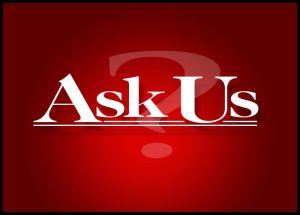Ask Us: What should I do if I have a dental emergency during COVID-19 outbreak?
Published 4:47 am Monday, April 27, 2020

- Ask Us
Editor’s note: Ask Us is a weekly feature published online Mondays and in print on Tuesdays. We’ll seek to answer your questions about items or trends in Rowan County. Have a question? Email it to askus@salisburypost.com.
SALISBURY — Normally, if you have a toothache, you go to a dentist, clinic or an emergency room, depending on your level of access and health insurance.
Like many other previously normal and taken-for-granted parts of life, though, the COVID-19 pandemic has scrambled this formula. As the nature of the virus has necessitated social distancing, once reliable aspects of life have become questions. Are dentists even open? If you’re having dental issues, what should you do?
Those with emergencies should call their regular dentist, said TJ Brown, the division chief for Rowan County Emergency Services.
The American Dental Association (ADA) has issued guidelines for dentists to follow during this time. An April 1 announcement recommended that dentists keep their offices closed other than the treatment of emergencies until April 30.
Local dentist Steve Yang says COVID-19 and the changes it has caused are unlike anything he has seen in his 22 years of practicing.
Yang said that he and most other dentists are following ADA recommendations. His office, for example, is open with a skeleton crew for shorter hours for emergencies only. He’s waiting to hear what the ADA recommends to do next.
The Community Care Clinic provides services to people who are uninsured or unable to otherwise access care. Normally, their services include dental, medical and pharmaceutical services.
Now, their lobby is closed. The process for picking up prescriptions has shifted to allow for social distancing measures, and medical visits are being facilitated via telemedicine.
As far as dentistry goes, they are triaging existing patients with emergency situations, said director Krista Woolly.
Dental problems can be painful without being emergencies, she said. For her, emergencies would be infections or abscesses.
The pandemic has made it difficult because of the risk of infection for those working in the clinic as well. The nature of dentistry is in-person, but seeing people for dental issues as they used to could put many people at risk for contracting the coronavirus, Woolly said.
Dr. Zach Brian is the director of the North Carolina Oral Health Collaborative, an oral health coalition. Brian said he also sees the difficulty in the COVID-19 situation. Dentistry involves saliva particles that become airborne, and that is a big risk given the contagious nature of COVID-19.
Brian emphasized dentists are called both to eliminate risk of transmitting COVID-19 and to provide care to those who need it. The pandemic has the potential to heighten the disparity of access for vulnerable populations that cannot receive regular and comprehensive oral care, he said.
Typically, those without easy access to care, such as those without health insurance, might go to an emergency room when a dental situation arises, he said. That’s part of what the Community Care Clinic is there to catch by providing care.
Importantly, neither the dental clinic in the health department nor Emergency Services have seen a large uptick in dental emergencies, Brown said.
If the dental issue isn’t fully resolved, dental problems can become cyclical, Brian said. That can have a big impact.
“The mouth is integrally connected to the rest of the body,” Brian said.
Acute infections, for example, can spread and result in death.
“Patients aren’t going to stop having issues, and we don’t want to overwhelm our emergency departments, either,” he said. “It’s a balancing act.”
The NC Oral Health Collaborative created a map with other partners in dental issues, such as local health departments, for the state to show where those needing emergency care can access it at safety net clinics. In the long term, it might be used to help vulnerable populations find continuous dental care, Brian said.
In the local area, the map lists the Community Care Clinic. It can be accessed at oralhealthnc.org/covid-19/#map.

